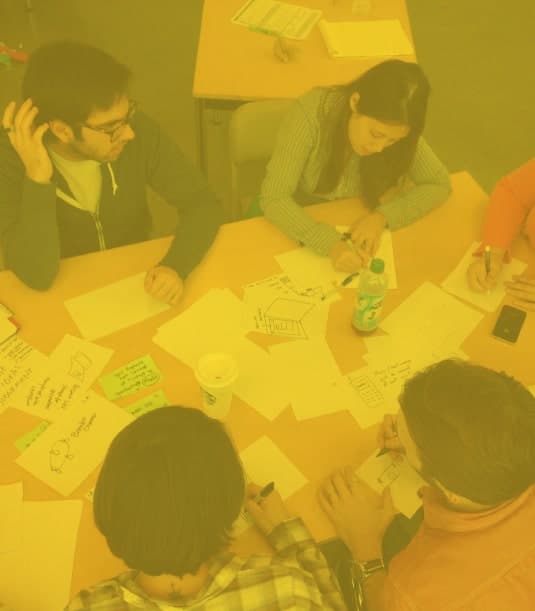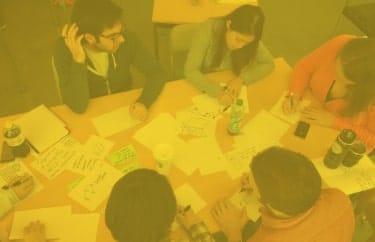Menu

The M.P.S. in UX Design program at the Maryland Institute College of Art (MICA) is a 30-credit hour program, designed to be completed in 15 months while working full time. Students in this program explore both the design and computer science sides of the user-experience equation, while mastering the analytical, problem-solving, and design thinking skills required in today’s tech-focused marketplace. View some of our innovative student capstone projects that are making an impact in the world.
Complete the 30-credit program in just 15 months from the comfort of your home and without having to leave your full-time job.
Learn the latest tools like Figma and develop foundational skills in UX Research and Design to be fully prepared to excel in the industry.
Small class sizes allow for increased engagement, promoting collaboration with classmates and instructors.
Your final capstone project will be an excellent opportunity to build your profile from concept to fully realized prototype with guidance from a faculty advisor.
Learn from passionate leaders who have built successful careers in UX Design across industries. Benefit from invaluable experience-based teaching models and mentorship, fostering essential skills for your career development.
Learn project management, budgeting, and strategic planning, and gain hands-on experience with project management software. Develop leadership and teamwork skills to succeed in the professional workspace.
In addition to the courses detailed below, these workshops are offered throughout the program at no additional cost:
Core Skills:
This course provides an overview of how human-centered design can increase and improve the accessibility and inclusivity of UX. You will study the nature of human-machine interactions that involve multiple modes of feedback and explore the application of human factors in the design and evaluation of user interfaces. Perception, cognition, social factors, and cognitive bias will be studied as you learn how to solve design problems using principles of user satisfaction, heuristic evaluations, and usability testing
Creating an elegant and fully complete interface requires a comprehensive and practical knowledge of numerous digital tools, technologies, and resources. This course has been designed to teach you the product design cycle from research and research synthesis to prototyping and validation. You will build your skills by employing industry-standard tools for managing cross-functional teams, product design, user research, data management, road mapping, and more. You will utilize these tools throughout the design process gaining proficiency for the remainder of the program.
The virtual industry immersive occurs at the midpoint of the program and enables you to collaborate with your cohort and network with each other as well as industry professionals. It consists of a mix of workshops, keynotes, and hands-on activities. This two-day experience surveys concepts, tools, and techniques that promote innovation. Students engage in exercises designed to apply and test creative techniques. At the conclusion of the virtual industry immersive, students will have knowledge of and practice with a number of approaches that can be applied through the second half of the program and into their careers.


The virtual industry immersive occurs at the midpoint of the program and enables you to collaborate with your cohort and network with each other as well as industry professionals. It consists of a mix of workshops, keynotes, and hands-on activities. This two-day experience surveys concepts, tools, and techniques that promote innovation. Students engage in exercises designed to apply and test creative techniques. At the conclusion of the virtual industry immersive, students will have knowledge of and practice with a number of approaches that can be applied through the second half of the program and into their careers.